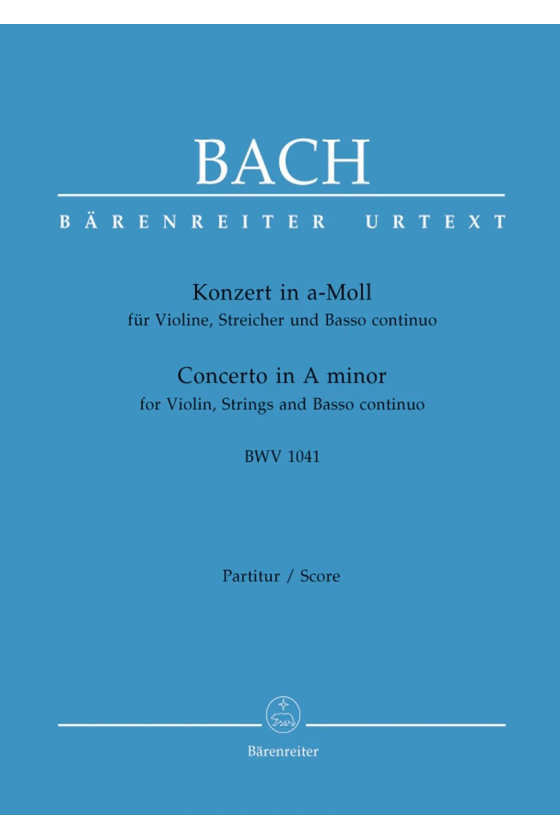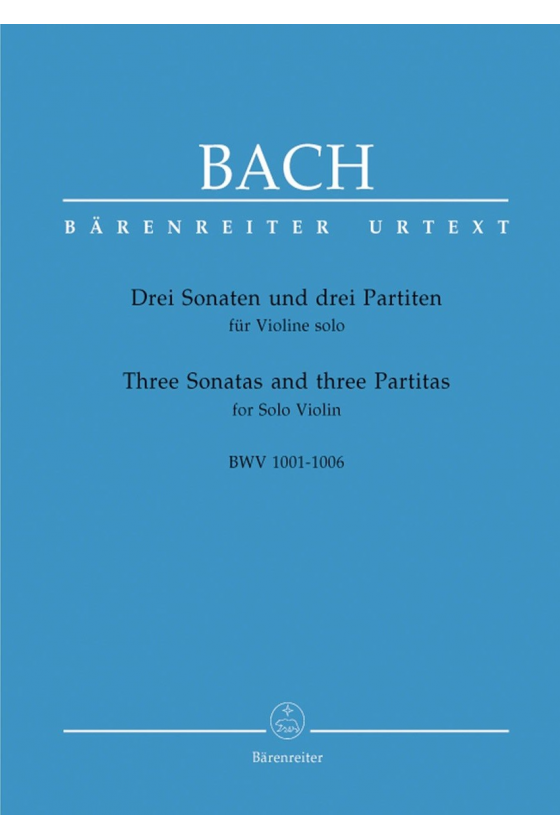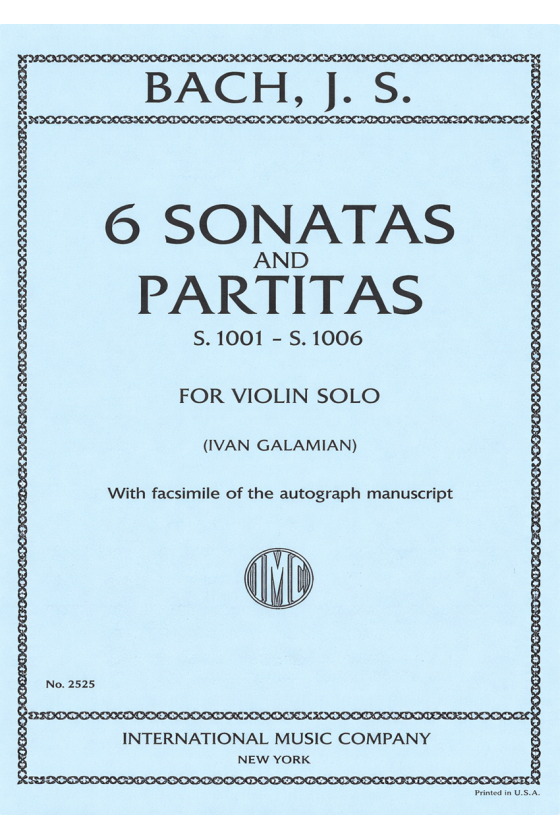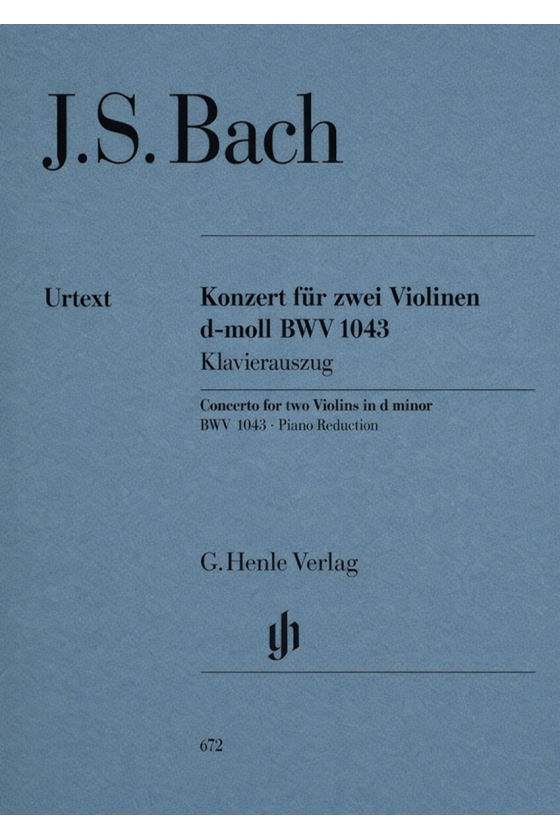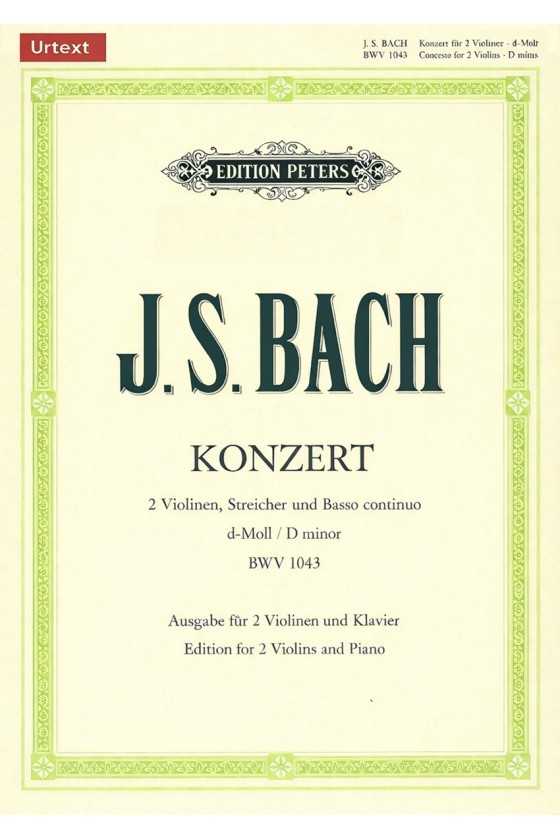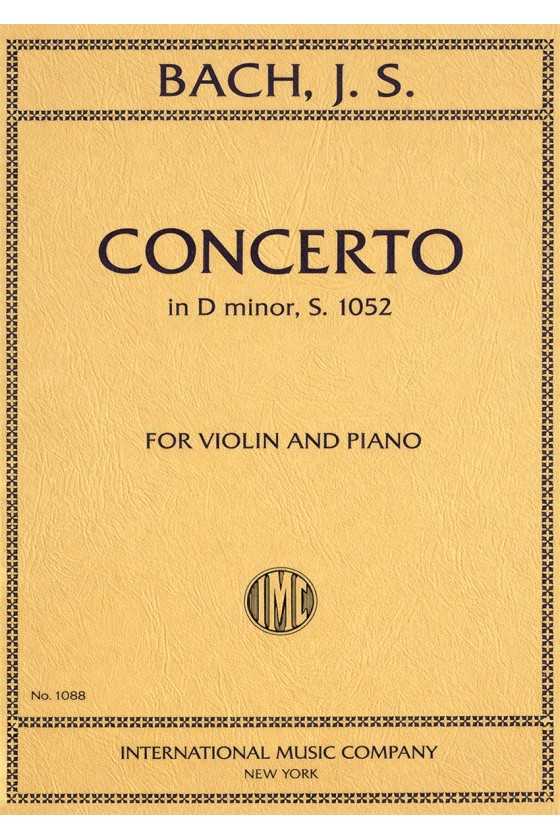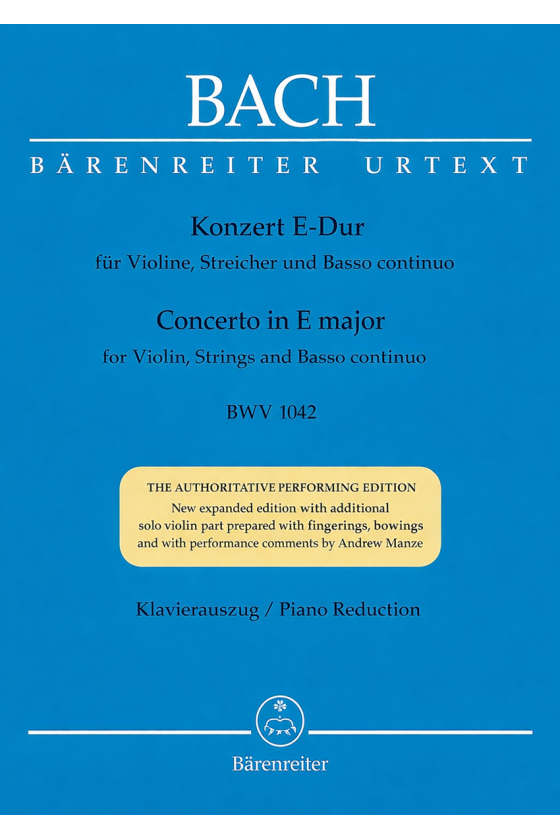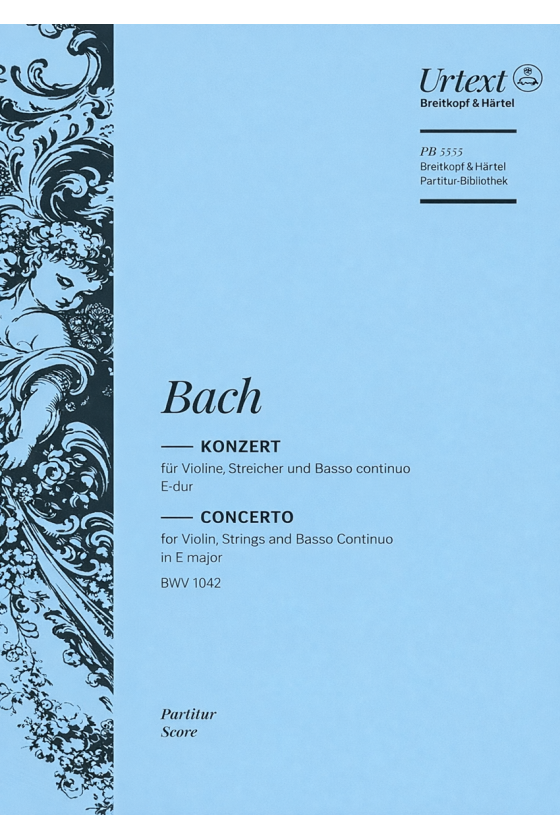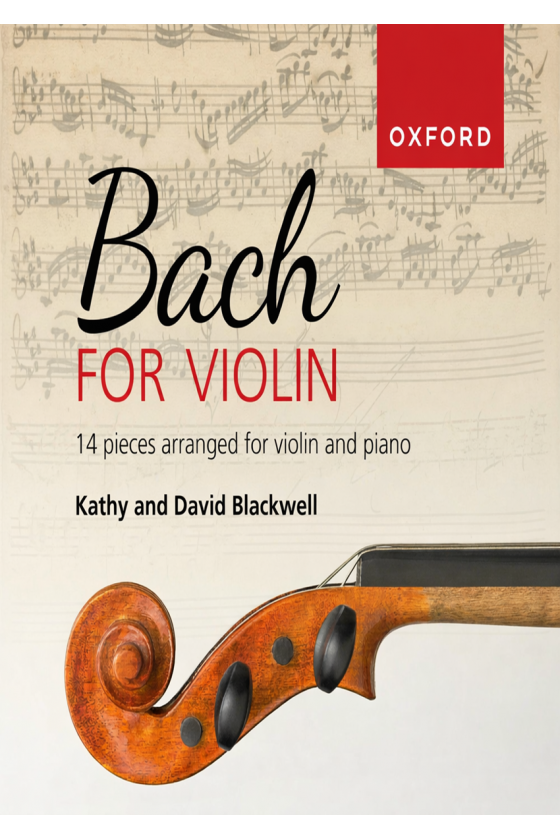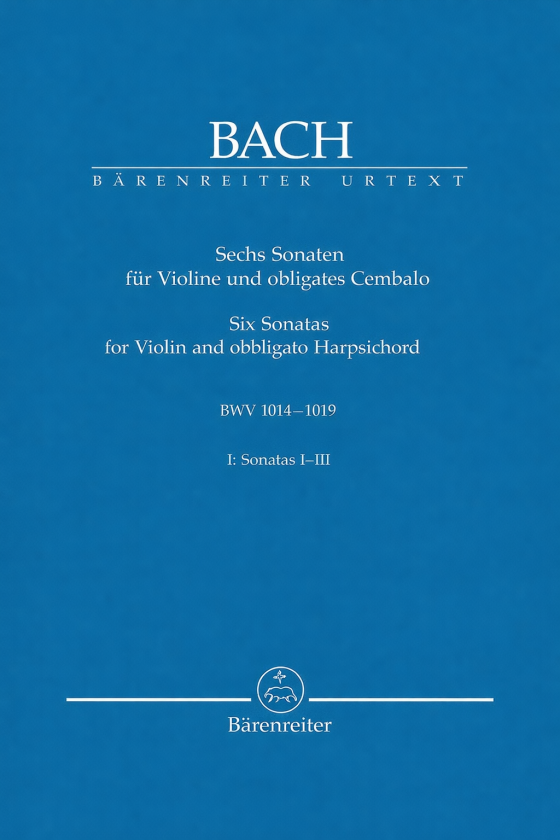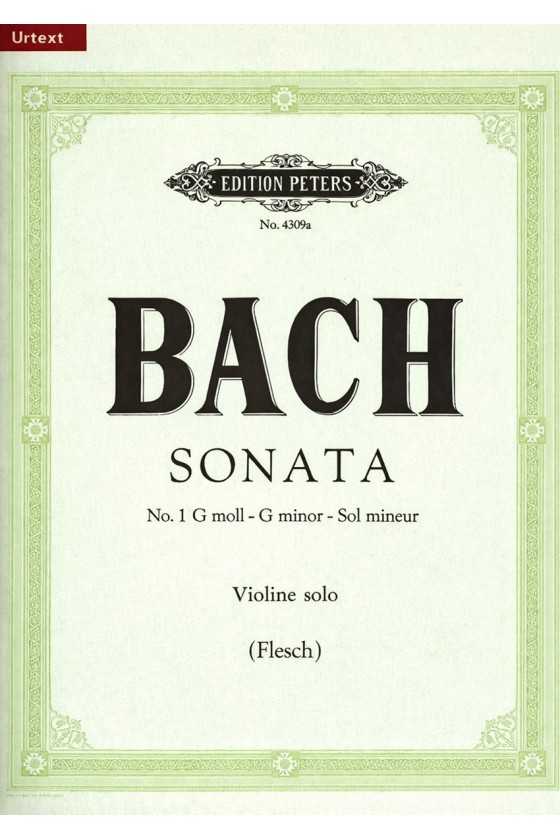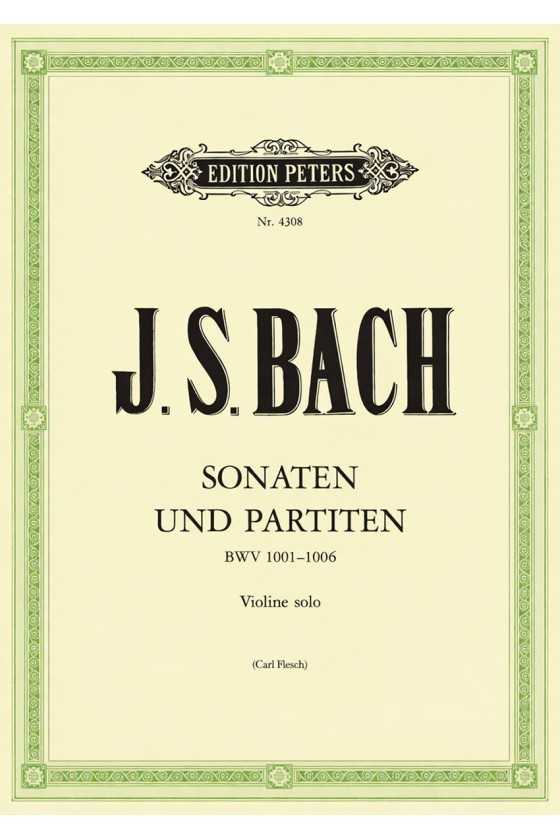Bach, Violin Concerto In A Minor BWV 1041 (Baerenreiter)
Johann Sebastian Bach, Violin Concerto in A Minor BWV 1041. Arranged by Martin Schelhaas. Edited by Dietrich Kilian. Published by Baerenreiter.
Discover the timeless allure of J.S. Bach’s Violin Concerto in A Minor, BWV 1041—a masterwork of the Baroque era composed during Bach’s renowned Köthen period (1717–1723). Opening with an Allegro moderato that brims with lively energy and interplay between solo violin and orchestra, the concerto continues with a lyrical Andante. It culminates in an Allegro assai, bursting with technical brilliance and rhythmic vitality. Celebrated for its expressive melodies, inventiveness, and lasting appeal, this concerto is an essential addition to any concert program or personal collection—immerse yourself in one of classical music’s most cherished works.


